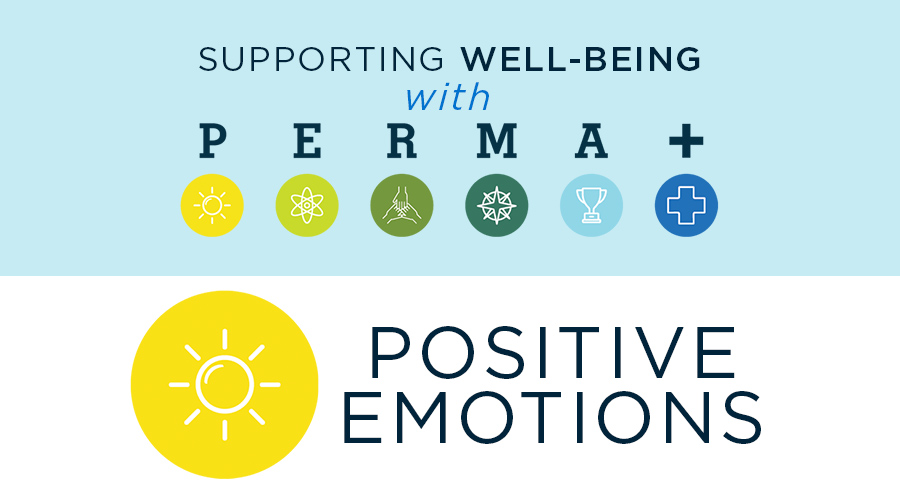Positive Emotions put the P in PERMA, Martin Seligman's scientific theory of how to develop and maintain well-being and happiness. We all have the ability to experience a range of positive emotions—from hope and joy, to amusement and compassion—and we can all increase our capacity for them. In addition to seeking out experiences that we know will give us all those good feels, we can work on finding the best in every situation and learn how to cope when things aren't so great. Bringing these practices to life can do more than improve our outlook and emotional state, they can have a positive impact on our physical health, too. The best part of PERMA is that there are things we can all do to develop these happiness-boosting building blocks of well-being. Each month we'll update this post with resources to help you do just that.
There are many ways to build positive emotions, but one idea to focus on now is meditation or mindfulness. Research suggests that loving-kindness meditation (LKM), in particular, can boost a person’s sense of connection and positive emotion. You can also try Calm (free trial) or Insight Timer for no-cost meditation on demand. To learn more about mindfulness, watch “All it takes is 10 mindful minutes” by Andy Puddicombe. If you are ready to sign on for more, try the Chopra Center’s 21 day meditation experience (free) or The Flourishing Center’s Better than Before 30-day program ($30 fee).
We can also use our strengths to work through difficult situations. Coping with the Coronavirus: A Strengths Perspective shows us how to take immediate action using our character strengths.
Experts are explaining our reactions to the coronavirus pandemic as parallel to typical grieving. Read this article on why it’s important to acknowledge the grief you may be feeling, how to manage it, and how you might find meaning in it.










